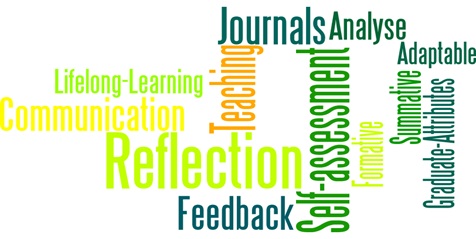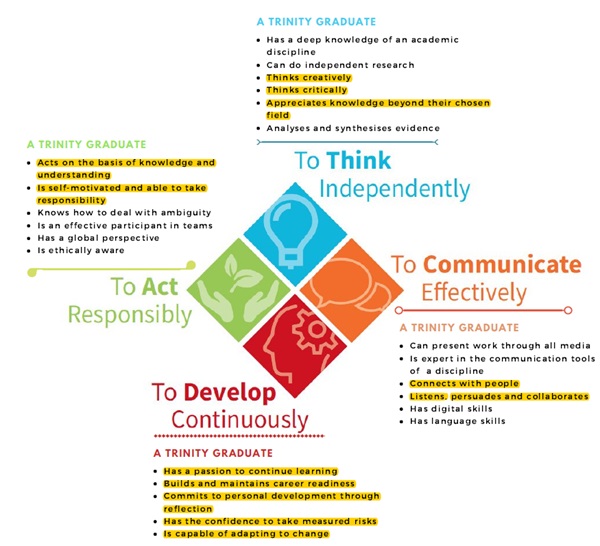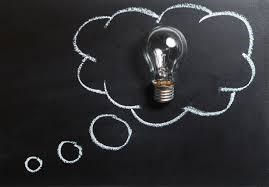What Reflection and how does it help me learn?
Click here for information in PDF format
Reflection is an important skill as it helps you to develop critical thinking and evaluation skills and to take ownership of your own academic, personal and professional development. Reflection can be used for assessment AS and FOR learning.
Reflection helps you to think critically about different aspects of your academic skills and experiences in college. Examples include reflection in an online journal on your role within a team (e.g. responsibilities, project management, communication skills and managing group dynamics); within a clinical work setting or student placement; in relation to a particular skill (for example academic writing or presentation skills) or in relation to a specific assignment (or series of assignments) such as an exam, project, essay, or lab report.
Reflection, as a form of assessment, is designed to empower you with the necessary tools to become a better learner. For that reason, it may or may not be graded and is primarily concerned with generating meaningful feedback so that you can learn to self-regulate your learning.

Which Graduate Attributes will this assessment help me develop?

Reflection can help you to develop and improve some or all of the Graduate Attributes, depending on your experience and skill level, and the assessment criteria. Here are some examples:
- To Think Independently
- For example, to consider the content creatively and critically and your engagement with it.
- To Communicate Effectively
- In particular, to reflect on your ability to present your observations to others and to connect with people.
- To Develop Continuously
- Such as evaluating your performance and setting goals for improvement.
- To Act Responsibly
- For example, by taking ownership of your own learning through reflecting and setting goals on an ongoing basis.
What is expected of me?
It is likely that your lecturer will provide you with a rubric, criteria or template to help you to reflect on a particular experience, scenario or form of assessment. Typical prompt questions for reflection, evaluation and goal setting may include the following:
- Describe the task, scenario or situation.
- Describe the steps you took to complete the task or goal.
- Analyse why you took the approach that you took.
- Evaluate the outcome (Were you successful or not?)
- What were the successes/challenges in completing the task?
- What would you do differently the next time?
- What have you learned?

Further resources
Reflective learning videos from Kevin Kelly, Assistant Professor, Mechanical & Manufacturing Engineering and the e-learning team, CAPSL, Trinity College Dublin:
Reflective Learning, Part I https://www.youtube.com/watch?v=qXzptQdMUMs
Reflective Learning, Part II https://www.youtube.com/watch?v=1c-jYcQJU5o
Reflective Learning, Part III https://www.youtube.com/watch?v=WdfWJOLf4iM

